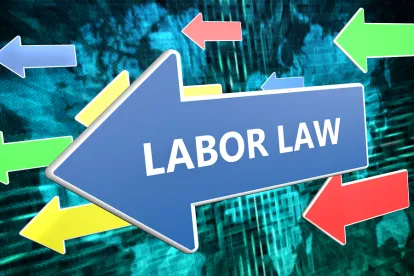Prior to the federal election campaign officially commencing, we held a briefing for clients during which we discussed the main issues which we considered would impact employers in the event that there was a change of government. A couple months and an election campaign later, on the eve of the vote, we look at what has changed since our seminar and what we can expect post Saturday if there is a new government. There have been no announcements of significant changes by the current government should it be re-elected.
Bargaining
- Industry based bargaining was an issue given prominence by both the ACTU and Labor in policy announcements. During the campaign, Labor has distanced itself from the ACTU's demand to extend industry-wide bargaining beyond low-paid industries. Bill Shorten stating that he is not convinced that 'we need to have … everyone going into industry bargaining'. That position has been recently reinforced by the Shadow Industrial Relations Minister Brendan O’Connor.
- Announced for the first time during the campaign is a proposal for the government to top up wages in the child care sector by up to 20%. The question is whether this model of subsided wage increase will be expanded to other sectors such as aged care and social services.
Diversity, Pay Equity and Flexibility
- On 26 April, Labor launched its Australian Women Plan for Equality.
- More detail has been provided regarding Labor's plans to require big businesses to publicly report the gender pay gap in their companies and companies submitting tenders for government contracts will required to report on any gender pay gap and demonstrate how they are attempting to close it.
- A Labor government will introduce 10 days paid leave under the National Domestic Violence Policy.
Work Health and Safety
- Labor has announced a commitment to harmonise industrial manslaughter laws.
Wages Regulation
- The ACTU has proposed a 'living wage' of 60% of the median wage, which would rise from $18.93 an hour to $21.17. Interestingly, Labor has not embraced the ACTU position, but has stated it would provide greater pressure on the Fair Work Commission, starting immediately, to increase the minimum wage on 1 July 2019.
- Labor has also announced that it will propose to amend the Fair Work Act to require the Fair Work Commission to consider cost of living pressure when considering movements in the minimum wage. There has been some discussion although no clarity on whether or not the automatic flow on of minimum wage movements to all awards will be amended.
- Labor has signalled a much greater degree of intervention in Fair Work Commission decision making on wage issues and penalty rates. This signals a change in direction for Labor which has previously supported the independence of the industrial umpire.
- Labor will reverse the penalty rates decisions of the Fair Work Commission in the hospitality and retail sectors within 100 days of being elected.
- Labor has announced a new body, part of the Fair Work Commission which will deal with claims of underpayments of up to $100,000 for workers. It will apparently mediate and adjudicate quickly on such claims. This appears to be similar to the small claims divisions of state industrial tribunals which previously performed such a function.
Insecure Employment
- Casual employment and insecure forms of employment continued to receive attention. It was announced by Labor that it will introduce an objective definition of 'casual' into the Fair Work Act but did not detail what that would be.
- Labor announced that it would allow workers to request permanent part-time or full-time employment after 12 months of regular hours with the same employer, and provide workers with the right to challenge an employer who unreasonably refuses such a request.
- Labor also announced that it would change the legal test for sham contracting.
There are many other elements of Labor's policy which were detailed prior to the campaign and have not changed, such as the regulation of labour hire on a national level and changes to the collective bargaining system such as arbitration of intractable bargaining disputes. Following the election, in the event there is a change of government, we will continue to monitor and update clients on proposals, changes and steps that can and should be taken to proactively manage potential legal and industrial changes to the landscape.



 />i
/>i


